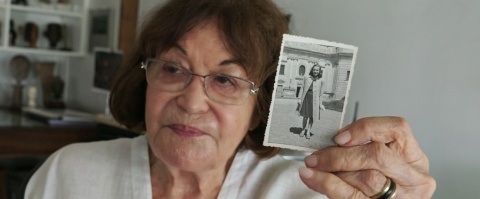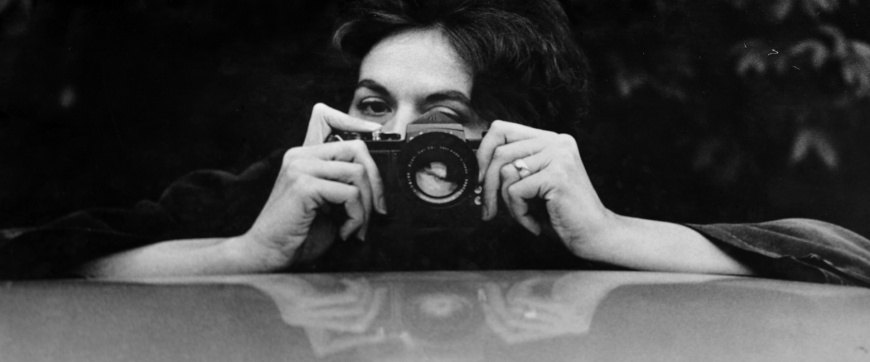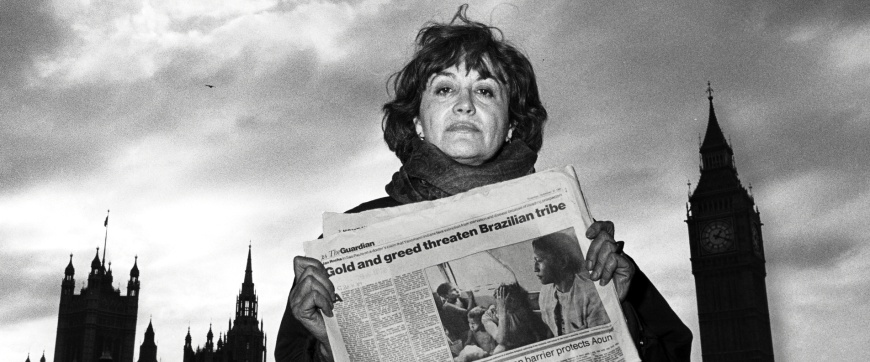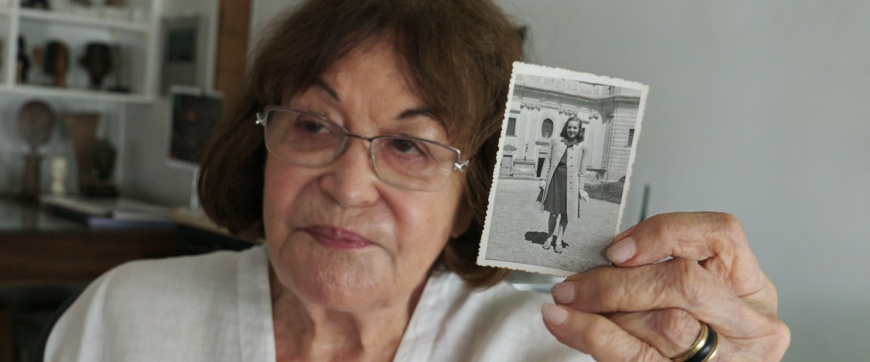Claudia Andujar

Now over 92 years old, Claudia Andujar is one of the world's most renowned photographers.
Born in Neuchâtel in 1931 to a Swiss mother, she grew up in Transylvania near the Hungarian-Romanian border. During the Second World War, the region was occupied by the German Wehrmacht in 1944. Her Jewish father and numerous other family members on her father's side were deported and lost their lives in concentration camps. Claudia Andujar and her mother fled to Switzerland.
A few years after the end of the Second World War, Claudia Andujar moved to New York to live with an uncle. She studied humanities and became increasingly fascinated by the artistic medium of photography. She went on to work successfully as a photojournalist for renowned publications such as "Life", "Look" and "The New York Times". The Moma (Museum of Modern Art) in New York includes photographic exhibits by Claudia Andujar in its collection.
From 1955 Claudia Andujar lives and works in São Paolo, Brazil. From the 1960s, she travelled to the Amazon region and came into contact with the Yanomami people. In the 1970s - Fundação de Amparo à Pesquisa do Estado de São Paulo. In the 1970s, she received scholarships from the John Simon Guggenheim Memorial Foundation and the (FAPESP) to photograph and research the Yanomami culture.
Claudia Andujar has lived with the Yanomami for a long time, returning to them time and again. She documents their way of life in the middle of the rainforest in her photographs. She also experiences the clash with the Brazilian "economic miracle" and the associated projects that threaten to destroy the Yanomami's habitat. And she is a direct witness to the struggle for survival of the endangered Yanomami culture, which continues to this day.
For Claudia Andujar, these experiences, far beyond the photographic, become the real theme of her life. She is courageously committed to the cause of the Yanomami, both personally and together with the aid organisations she co-founded. These organisations in turn learn from Claudia Andujar how they can confront the existing dangers, for example in relation to overexploitation in the rainforests or attempts to expel them. They also represent their interests internationally with well thought-out, media-supported campaigns. The joint struggle has been successful: in the 1990s, the Yanomami were guaranteed territorial rights by the Brazilian government in their ancestral habitat.
However, this does not change the economic greed for profit, for example for grazing land, and the exploitation of natural resources. Furthermore, attempts are being made to reduce the Yanomami's sphere of influence by means of corruption and sheer violence - emanating from agricultural corporations, timber companies and gold miners, for example - through the destruction of forest areas or the contamination of watercourses. However, a young, self-confident generation of indigenous people is now standing up to these outrages. They are continuing the fight for their rights that Claudia Andujar began.
In 2018, Claudia Andujar was honoured by the Goethe Institute with the Goethe Medal, the most important prize in Germany's foreign cultural policy.
A selection of Claudia Andujar's most important groups of works will be presented at the Deichtorhallen in Hamburg from 9 February to 11 August 2024.






